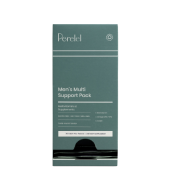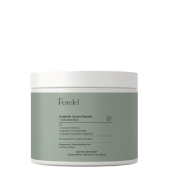When we talk about cramps, it’s usually to say how much they hurt, but with little understanding of why they hurt.
Let’s move toward some understanding and relief.
What causes period cramps?
Usually, cramps show up before or during your period. That’s because your uterus contracts to shed its lining, which leads to your period. All that tightening can cause pain.
What’s to blame for this painful tightening? Prostaglandins. This hormone-like compound creates uterine contractions, and period-related gas and diarrhea. In fact, people with higher prostaglandin levels tend to have worse period pain.
Severe cramps can be caused by conditions like endometriosis, ovarian cysts, adenomyosis, and fibroids.
What are period cramps like?
If you’ve had them before, you already know what they’re like for you, but the sensation and intensity varies from person to person. They can feel like:
-
Aching pain in your belly
-
Pressure in your stomach
-
Pain in the hips, lower back, and inner thighs
The pain might be a dull ache or, shall we say, stabby. Often, period cramps are just mildly inconvenient, but 20 percent of women have pain that interferes with daily activities. This is called dysmenorrhea.
There are two kinds of dysmenorrhea. Primary dysmenorrhea is when you have monthly period pain caused by prostaglandins. Secondary dysmenorrhea is when you have monthly cramps that are caused by something else, like endometriosis.
If your pain doesn’t respond to ibuprofen—or if it stops you from going to school or work—then you should see your doctor.
How common are PMS and period cramps?
Pain before or during your period is super common. A few stats for proof:
-
Around 80 percent of people have experienced period pain.
-
Fifty percent of folks experience pain every cycle.
-
Cramps and pain are the No. 1 most common period-related problem.
-
Twenty percent of women have period cramps that interfere with daily activities.
-
When calling in sick to work because of their periods, only 20 percent of women give the real reason why.
Shop the Article:
What are some ways to relieve period pain?
There are lots of comfort measures that can help with period pain. Experiment to see what works best for you.
Heat: Try a warm water bottle or heating pad on your lower back or belly.
Water: A warm shower or bath will help you relax, which can ease pain.
Massage: Research shows that getting a massage before your period is linked to less pain.
Exercise: Exercise helps with blood circulation and boosts endorphins. Try gentle options like walking, biking, and swimming.
Orgasms: Not that you need another reason to have one, but orgasms can relieve pain and increase blood flow to your uterus.
Meditation: Any relaxing activity, including meditation, can help distract you from discomfort and pain.
Medication: If it aligns, consider taking ibuprofen one to two days before your period starts.
Supplements: Taken daily, magnesium, zinc, and turmeric might help to reduce prostaglandins to prevent period pain.
Avoid: Try staying away from alcohol, caffeine, dairy, and smoking, all of which can make cramps worse.
Regardless of whether your period pain is mild or severe, you can ask your OB-GYN for help.
Keep in mind: You can track your symptoms for a few cycles and see if things improve with any of these comfort measures.
How can I talk about this?
If you’re bothered by your period cramps, it’s a great idea to talk with your OB-GYN. You should voice your own particular needs, but here are a few scripts for inspiration:
“My period cramps take over my life for a couple days every month. I really need some relief. What should I do?”
“My cramps have gotten worse and I’m worried something else is going on. Can you screen me for fibroids and endometriosis?”
“I’m getting cramps in the middle of my cycle. Is this ovulation pain?”
“I never had period cramps before. Now I get them every month. What’s going on?”
Takeaways:
-
Cramps or period pains are caused by the tightening of your uterus as it sheds its lining.
-
The compound prostaglandin is responsible for those contractions, as well as period-related gas and diarrhea.
-
Primary dysmenorrhea is when you have monthly period pain caused by prostaglandins.
-
Secondary dysmenorrhea is when you have monthly cramps that are caused by something else, like endometriosis.
READ MORE: Find relief from your most disruptive PMS symptoms
Resources:
Barcikowska Z, Rajkowska-Labon E, Grzybowska ME, Hansdorfer-Korzon R, Zorena K. Inflammatory Markers in Dysmenorrhea and Therapeutic Options. Int J Environ Res Public Health. 2020 Feb 13;17(4):1191. doi: 10.3390/ijerph17041191. PMID: 32069859; PMCID: PMC7068519.
Latthe, P. (2012, February 15). Dysmenorrhea. Retrieved September 14, 2022, from https://www.aafp.org/pubs/afp/issues/2012/0215/p386.html
Schoep ME, Adang EMM, Maas JWM, et alProductivity loss due to menstruation-related symptoms: a nationwide cross-sectional survey among 32 748 womenBMJ Open 2019;9:e026186. doi: 10.1136/bmjopen-2018-026186
Hernandez-Reif M, Martinez A, Field T, Quintero O, Hart S, Burman I. Premenstrual symptoms are relieved by massage therapy. J Psychosom Obstet Gynaecol. 2000 Mar;21(1):9-15. doi: 10.3109/01674820009075603. PMID: 10907210.
Parazzini F, Di Martino M, Pellegrino P. Magnesium in the gynecological practice: a literature review. Magnes Res. 2017 Feb 1;30(1):1-7. English. doi: 10.1684/mrh.2017.0419. PMID: 28392498.
Dysmenorrhea. (2019, May 13). Johns Hopkins Medicine. Retrieved September 20, 2022, from https://www.hopkinsmedicine.org/health/conditions-and-diseases/dysmenorrhea#:%7E:text=Secondary%20dysmenorrhea%20is%20caused%20by,%2C%20infection%2C%20and%20pelvic%20pain.






















